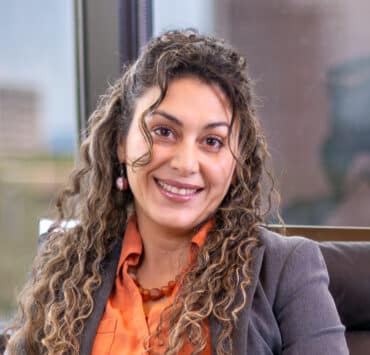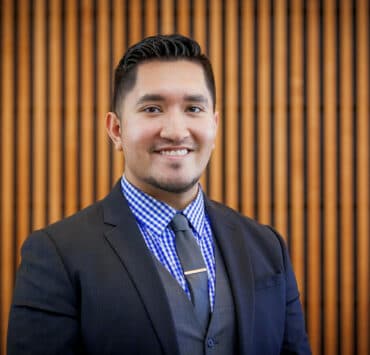|
Getting your Trinity Audio player ready...
|
The disparity in investing is one of the more pronounced inequities across racial lines. According to the Pew Research Center, about 61 percent of white US households own some stock while only 28 percent of Latino households can claim the same.
The facts just don’t add up when one factors in that nearly 50 percent of all businesses from 2007 to 2017 were started by Latinos. As the largest minority group in the US, one growing all the time, Latinos represent the future of capital on both sides of the equation: those creating the wealth and, ideally, those managing it.
But Latino representation in investment areas like mutual funds is also incredibly rare, so rare it’s hard to find quantifiable data on exactly how many Latinos work in the space. But there are three Latinas who have spent considerable parts of their careers working to change that.
“Our first real challenge wasn’t about being Latina, it was about being women.”
Adela Cepeda
Adela Cepeda (board member and chief of the capital committee at BMO Financial Group), Paulita Pike (partner at Ropes & Gray), and Emma Rodriguez-Ayala (general counsel, chief compliance officer, and board secretary at LGIM America) are three incredibly accomplished Latinas whose career achievements are only eclipsed by their commitment to bringing more representation to a space where they themselves have often been the only women and only Latinas in the room.
“If there is any space where I think it should be obvious to have representation, I think it’s mutual funds,” Pike says. “Mutual funds are the democratization of investments. They were created to give access to people of limited means. The vast majority of that $30 trillion [currently in mutual funds] represents money invested in 401(k) plans, retirement plans, and in college savings plans. It makes sense for people of all backgrounds to be involved in this space, whether it’s on the legal side, the investing side, or the board side. This space should be representative of the public that is creating this capital.”
Charting a Path to Success
With great respect to both Pike and Rodriguez-Ayala, Cepeda is sort of the reigning queen of driving Latinos to the investment space. This is a fact that both Pike and Rodriguez-Ayala mention independently. Cepeda has been striving for more representation before it was even a concept.
“Our first real challenge wasn’t about being Latina, it was about being women,” Cepeda says. “As the only woman in the room, I was always so conscious of how different my voice sounded. It’s so hard to be heard in a room full of men. It was such a challenge that I didn’t even start thinking about my background until later on.”
“Mutual funds are the democratization of investments. They were created to give access to people of limited means.”
Paulita Pike
Rodriguez-Ayala faced those same kinds of challenges earlier in her career. She decided she would always be the most prepared person in the room. “In hindsight, I think I spent a lot of my time and mental energy in a way that wasn’t necessarily very healthy,” Rodriguez-Ayala says. “I was so worried about how I would come across to a room full of men that I would spend three hours preparing for a twenty-minute presentation. That time could have been used so much more productively, but it’s how I tried to earn my way into a place I didn’t always feel like I belonged.”
While Cepeda and Rodriguez-Ayala were carving out space in the investment sphere, Pike was earning a reputation as an attorney and international expert in registered funds. She’s regularly quoted in publications such as the Financial Times, BoardIQ, and MarketWatch. “She is a voice in the industry,” Cepeda says. “I just saw her quoted on a major issue somewhere this morning.”
More Mentors—and Fast
Pike says her own trajectory was forever altered by a mentor. Paul Dykstra, retired Ropes & Gray partner and adjunct law professor, was an invaluable guide to Pike throughout her entire career. Both Pike and Dykstra teach two law classes at the Notre Dame School of Law and Northwestern Pritzker School Law.
“He is a perfect and powerful example of allyship and sponsorship, and he is a white male,” Pike explains. “When we talk about promotion and sponsorship of diverse individuals, there are those of us who have to work to pay it forward. But it also takes a great deal of involvement from non-diverse individuals. We need more people like Paul stepping up.”
The sheer dearth of Latinas in the investment space has created a very small community of over-extended mentors. According to Rodriguez-Ayala and Pike, Cepeda is somehow always involved.
“Adela is the mentor that many of us Latinas had,” Rodriguez-Ayala says. “Because of her, there are more Latinas in investments and finance. She is the first call for so many people, including myself. There was a point where I had accomplished these things by keeping my head down and working hard. Adela was the one who told me that the lack of fulfillment I was feeling was because my community needed me. I needed to be advocating for others.”
“There is a passion that comes with this kind of work.”
Emma Rodriguez-Ayala
“Adela is a superhero,” Pike says. “She is a role model. She is incredible. But, again, we need so many more of her. It can’t just be her doing this work.”
Pike has been known to bring her summer associates to board meetings—held in different cities, and attended on the firm’s dime—to get them exposure, to show them what they can work toward, and to inspire them by the diversity that can exist at organizations that are more forward-thinking in their efforts.
“That inspiration is so important,” Pike says. “You can see women, you can see Latinos, you can see people of color, and know that it could be you someday.”
Pike also says she’s watched Rodriguez-Ayala become an incredible mentor in her own right. “Emma somehow discovered thirty-five hours in the day, because I really don’t know how she does it,” Pike says jokingly. “She’s been so committed to increasing representation from what really seems like the start of her career. As soon as she had the opportunity, she became a strong voice and a strong sponsor.”
The Elevator Pitch
Cepeda, Rodriguez-Ayala, and Pike all highlight the work that the Latino Corporate Directors Association (LCDA) and Angeles Investors do to develop and support Latino leaders and businesses. Both Cepeda and Rodriguez-Ayala currently serve on Angeles’ board of directors, in which roles they’re able to continue connecting Latinos in the industry, source financing for investments, and place more Latinos on boards where they can accumulate necessary experience.
Rodriguez-Ayala says that whenever she has the potential to present an elevator pitch encouraging someone to move into mutual funds, she starts much broader.
“If you want to talk about who is deciding what pension plans look like in fifty years or how your kids are going to be able to pay for college, or how their 401(k) plan is doing, the only industry that’s going to actually manage that is investments,” Rodriguez-Ayala explains. “You don’t just have to know a single company. You have to know markets. There is a passion that comes with this kind of work.”
“She’s right,” Cepeda says. “There’s an elation that can’t be replicated when the market is favorable. When it goes down, you have to learn to handle the swing. But it’s fascinating. It’s human. It makes work fun.”

